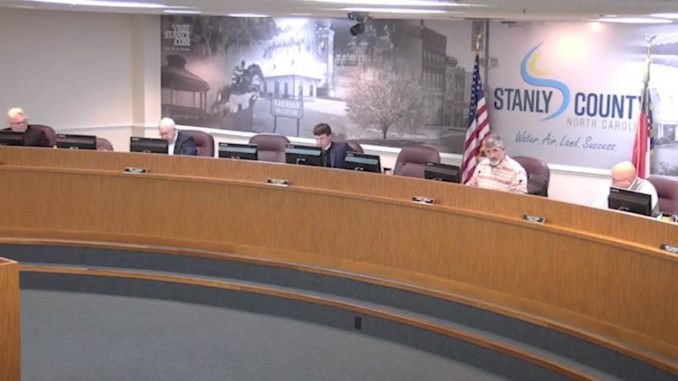
ALBEMARLE — The Stanly County Board of Commissioners unanimously voted at its August 8 meeting to continue the allocation of opioid settlement federal funding to the Gateway of Hope program in New London and the Legacy Sober House program in Locust.
Created by pastor Larry Wilkins, Gateway of Hope is the county’s first long-term addiction rehabilitation facility, and Legacy Sober House is composed of four sober houses in downtown Locust.
The Opioid Settlement Special Revenue Fund grant for both transitional housing support nonprofits — given by the federal Health Resources and Services Administration — was scheduled to expire on August 31, 2022, but will now be renewed for an additional $60,000 between the dates of September 1, 2022, and August 31, 2023, as recommended by the Stanly County Health and Human Services Board.
According to county manager Andy Lucas, the county originally secured a $1 million federal HRSA grant in mid-2019 to address the opioid misuse disorder issue in the community, and the county will continue to pass appropriation resolutions for a special revenue fund.
To date, Stanly has received $179,380 from the national opioid settlement, and it is anticipated that the county will receive another $394,490 in the Fiscal Year 2022-2023. The total estimation is that $4.668 million from the settlement funds will be granted over an 18-year period.
“These houses are transitional housing for those who are in recovery, and they’re really an important cog in the wheel of this whole mitigation strategy around opioid misuse disorder,” Lucas told the board. “These resolutions are important because we have to submit them to a database so that everyone knows specifically how every county in North Carolina is spending the funding per our memorandum of agreement.”
Wilkins told SCJ that his vision for Gateway of Hope is to combat Stanly County’s consistent ranking as one of the state’s highest-rated areas of opioid overdoses by giving people the extended assistance they need.
“Programs that last 28 days can serve a purpose, but for the impact that we want to have, we’re looking for a lasting commitment from our end to help them,” Wilkins said. “Another aspect of what we want to do out here is a jail-diversion program working with the courts — instead of a judge sending you to jail for the fifth time in two years, you could have the option of going to rehab for your sentence.”
Per the agreement between Wilkins and the county, both Gateway of Hope and Legacy Sober House will be required to provide the county with updated information on how the funding is being used throughout the programs; the county will subsequently report those details to HRSA department heads on an annual basis.
